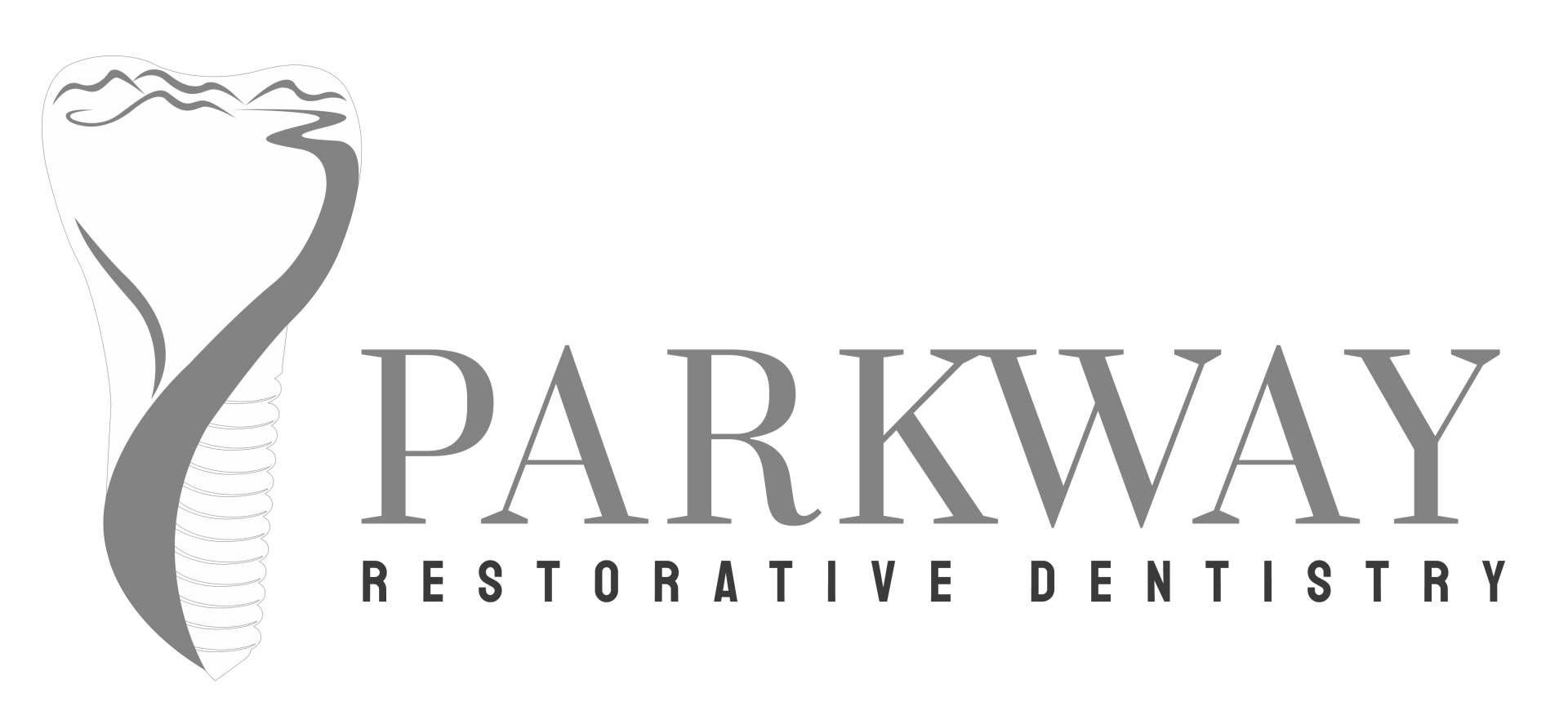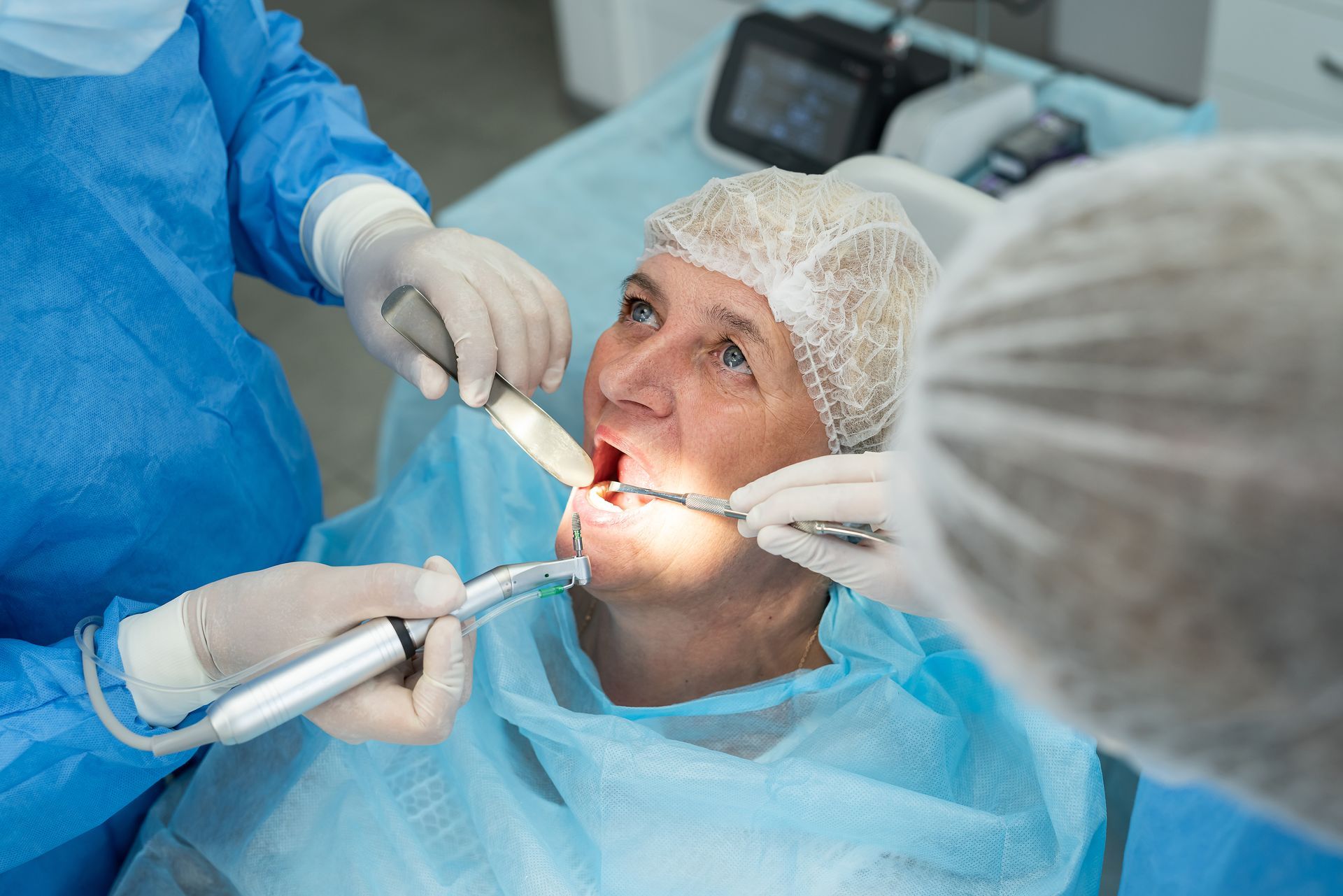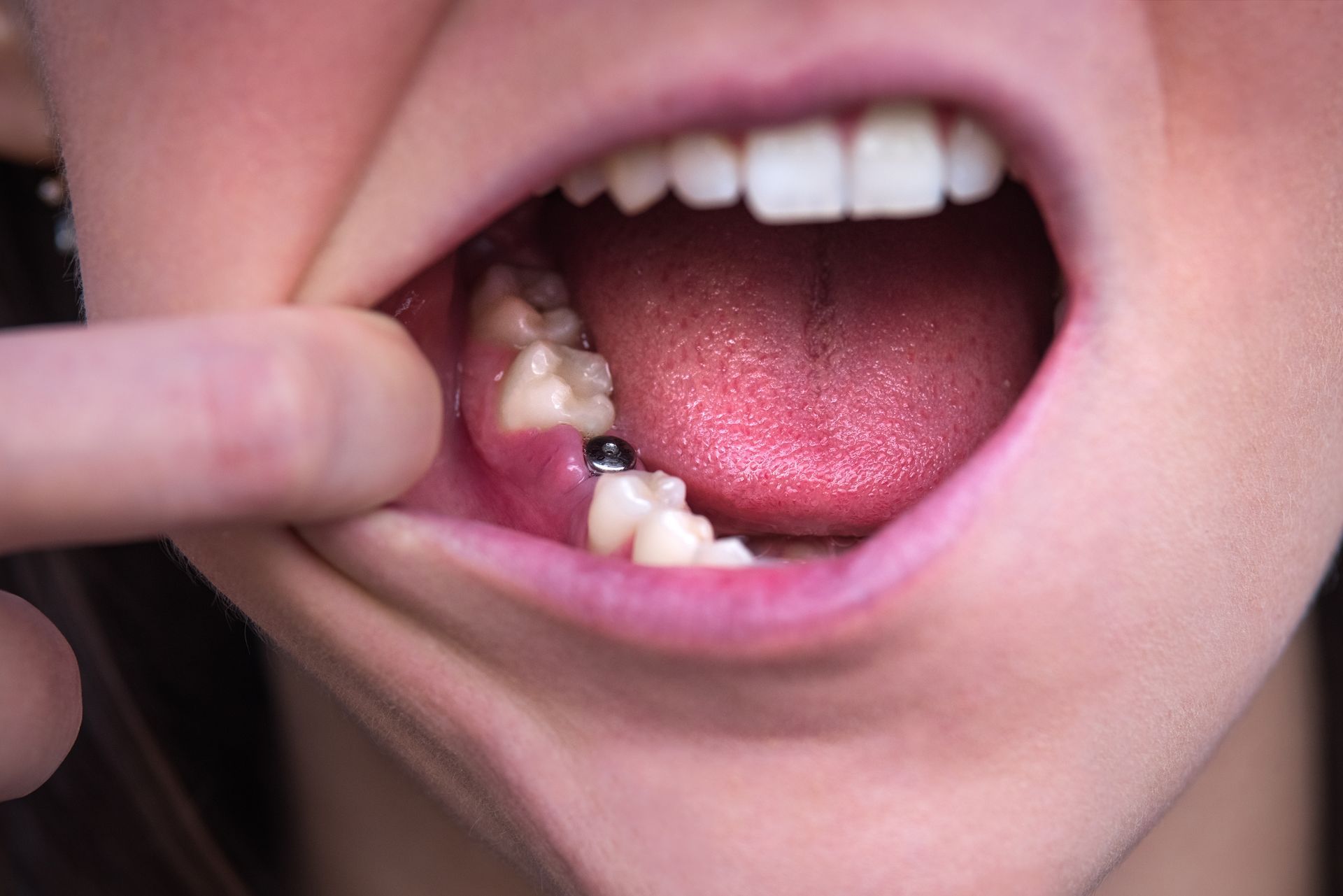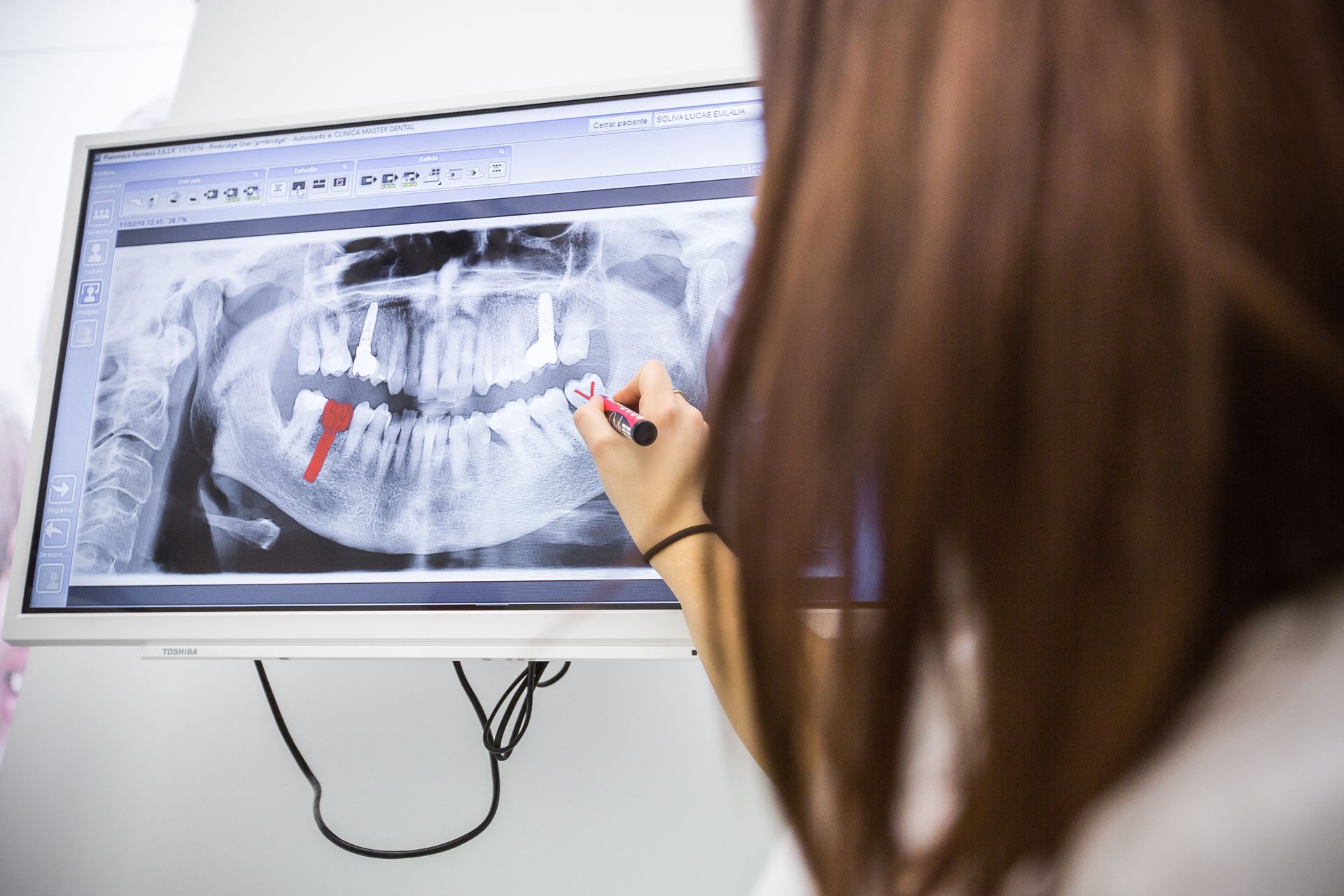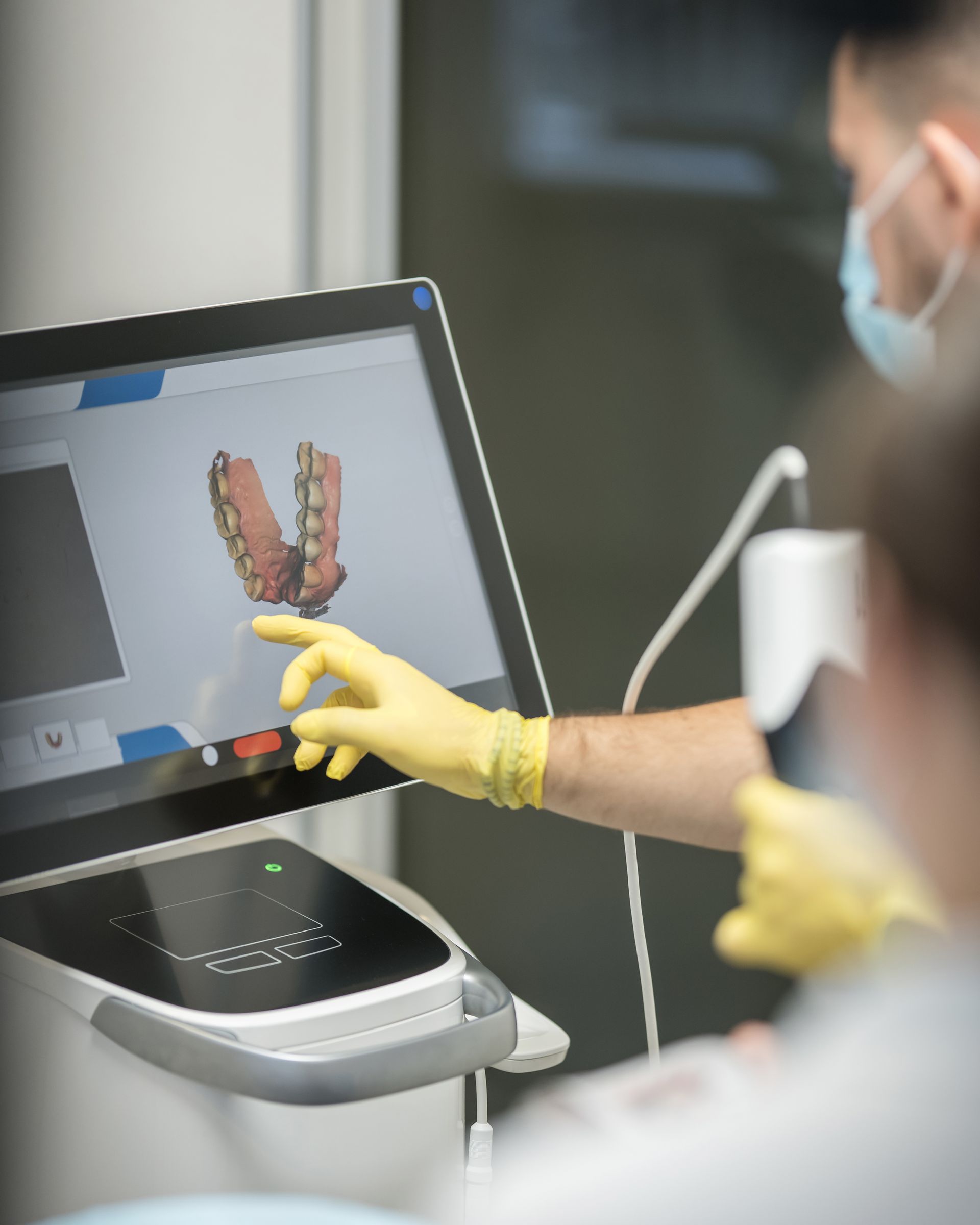Dental Implants vs. Dentures vs. Bridges: What's Best for Replacing Missing Teeth?

Losing a tooth can change the way you smile, eat, and even how confident you feel. The good news is that there are several ways to replace missing teeth. The most common options are dental implants, dentures, and bridges.
But how do you know which one is right for you? Let's compare the pros and cons of each so you can make an informed choice for your smile.
Option 1: Dental Implants
Dental implants are often considered the gold standard for tooth replacement. An implant is a titanium post placed in your jawbone. Once it heals, a crown, bridge, or denture can be attached to it.
Pros of Dental Implants:
- Look and feel like natural teeth
- Can last a lifetime with proper care
- Help prevent bone loss in the jaw
- Stable — no slipping or moving
- Do not rely on surrounding teeth for support
- Maintain your natural bite strength
- Easy to clean like regular teeth
Cons of Dental Implants:
- Higher upfront cost
- Requires a surgical procedure
- Takes a few months for full healing
- Not everyone is a candidate (depends on bone health)
- May need additional procedures like bone grafts
Implants are ideal for people who want a long-lasting, natural solution and are willing to invest in their smile. They work best for patients with good bone density and overall health.
Option 2: Dentures
Dentures are removable appliances that replace missing teeth. They can be full (all teeth) or partial (some teeth). Modern dentures are much more comfortable and natural-looking than older versions.
Pros of Dentures:
- Lower upfront cost compared to implants
- Non-surgical option
- Can replace many teeth at once
- Quick to make and fit
- Good option for patients who cannot have surgery
- Can be adjusted as your mouth changes
Cons of Dentures:
- May slip or move while eating or speaking
- Can cause sore spots on gums
- Need to be replaced every 5–8 years
- Do not prevent bone loss
- May affect the way food tastes or feels
- Require special cleaning and care
- Can limit food choices
Dentures can be a good choice for patients looking for a budget-friendly or quick solution, but they may not feel as natural as implants. They work well for people who have lost most or all of their teeth.
Option 3: Dental Bridges
A bridge uses the teeth on either side of a missing tooth as anchors. A false tooth (called a pontic) is attached in between. Traditional bridges are cemented in place and cannot be removed.
Pros of Bridges:
- More affordable than implants
- Do not require surgery
- Can usually be completed in just a few visits
- Look fairly natural
- Fixed in place (no removal needed)
- Restore normal chewing ability
Cons of Bridges:
- Require the reshaping of healthy teeth next to the gap
- May need replacement after 10–15 years
- Do not prevent bone loss
- Not as durable as implants
- Harder to clean under the bridge
- If one anchor tooth fails, the whole bridge may need replacement
Bridges are a middle-ground option, often chosen when one or two teeth are missing and the surrounding teeth are strong. They are not ideal if the neighboring teeth are perfectly healthy.
Side-by-Side Comparison
| Feature | Dental Implants | Dentures | Bridges |
|---|---|---|---|
| Longevity | 15+ years, often lifetime | 5–8 years | 10–15 years |
| Looks/Feel | Most natural | Less natural, removable | Natural but fixed |
| Bone Protection | Yes | No | No |
| Comfort | Very stable | Can slip or rub gums | Fairly stable |
| Cost | Higher upfront | Lowest upfront | Moderate |
| Surgery Needed | Yes | No | No |
| Cleaning | Like natural teeth | Special care needed | More difficult |
| Food Restrictions | None | Some limitations | Few limitations |
Special Considerations
Age and Health
- Younger patients often prefer implants for their longevity
- Older patients may choose dentures for simplicity
- Health conditions like diabetes may affect implant healing
- Medications can impact bone healing and implant success
Lifestyle Factors
- Active lifestyles benefit from the stability of implants
- Budget concerns may point toward dentures initially
- Time constraints might favor bridges for quicker results
- Dental anxiety may influence the choice away from surgery
Number of Missing Teeth
- Single tooth: Implants or bridges work well
- Multiple teeth: Implants or partial dentures
- Full mouth: Implants with dentures or full dentures
Combination Options
You do not have to choose just one option. Many patients benefit from combinations:
Implant-Supported Dentures
These combine the affordability of dentures with the stability of implants. A few implants hold the denture in place, preventing slipping and improving comfort.
Mixed Treatments
Some patients get implants for front teeth (for appearance) and bridges or dentures for back teeth (for function and cost savings).
Which Option Is Best?
There is no one-size-fits-all answer. It depends on your goals, budget, and overall oral health.
Choose implants if:
- You want the most natural, long-lasting solution
- You are willing to invest in your smile
- You have good bone density
- You want to preserve your jawbone
- You do not want to affect healthy teeth
Choose dentures if:
- You want the lowest cost upfront
- You need to replace many teeth quickly
- You cannot have surgery
- You want a non-permanent solution
- You have significant bone loss
Choose bridges if:
- You are missing one or two teeth
- You want a fixed solution without surgery
- The neighboring teeth need crowns anyway
- You want faster results than implants
- Cost is a moderate concern
At Parkway Restorative Dentistry, we often find that patients prefer implants once they understand the long-term benefits. They may cost more at first, but they also provide the best function, comfort, and appearance over time.
Making Your Decision
When deciding between these options, consider:
- Your budget now and over time
- How many teeth you need to replace
- Your age and health status
- Your lifestyle and activity level
- How important appearance is to you
- Whether you can have surgery
- Your long-term goals for your smile
FAQs
Are implants always better than dentures or bridges?
Not always. While implants are the most advanced option, dentures and bridges may be better choices for certain patients depending on budget, health, and personal preferences.
Do bridges damage nearby teeth?
Yes, bridges require the reshaping of healthy teeth on either side of the gap. This removes some tooth structure permanently. This is why implants are often preferred when neighboring teeth are healthy.
Can dentures be supported by implants?
Yes. Implant-supported dentures are a popular option that combines affordability with stability. Usually 2-4 implants can hold a denture securely in place.
How do I know which one is right for me?
The best way is to schedule a consultation. A dentist can evaluate your oral health, discuss your goals and budget, and review your options in detail.
Can I switch from dentures to implants later?
Often, yes. Many patients start with dentures and later upgrade to implants. However, bone loss from wearing dentures may require additional procedures.
What if I cannot afford implants right now?
You might consider starting with dentures and planning for implants later. Or ask about financing options that can make implants more affordable with monthly payments.
Take the Next Step
Still wondering whether implants, dentures, or bridges are right for you? Schedule a consultation with Parkway Restorative Dentistry in Asheville today. We will guide you through your options, explain the pros and cons of each, and help you choose the best solution for your smile and lifestyle.
Every patient is different, and what works for your neighbor might not be the best choice for you. That is why we take the time to understand your unique situation and goals before making any recommendations.
Disclaimer
This blog is for informational purposes only and should not be taken as dental or medical advice. Every patient's needs are unique. For guidance about your specific situation, please consult a licensed dental professional.
